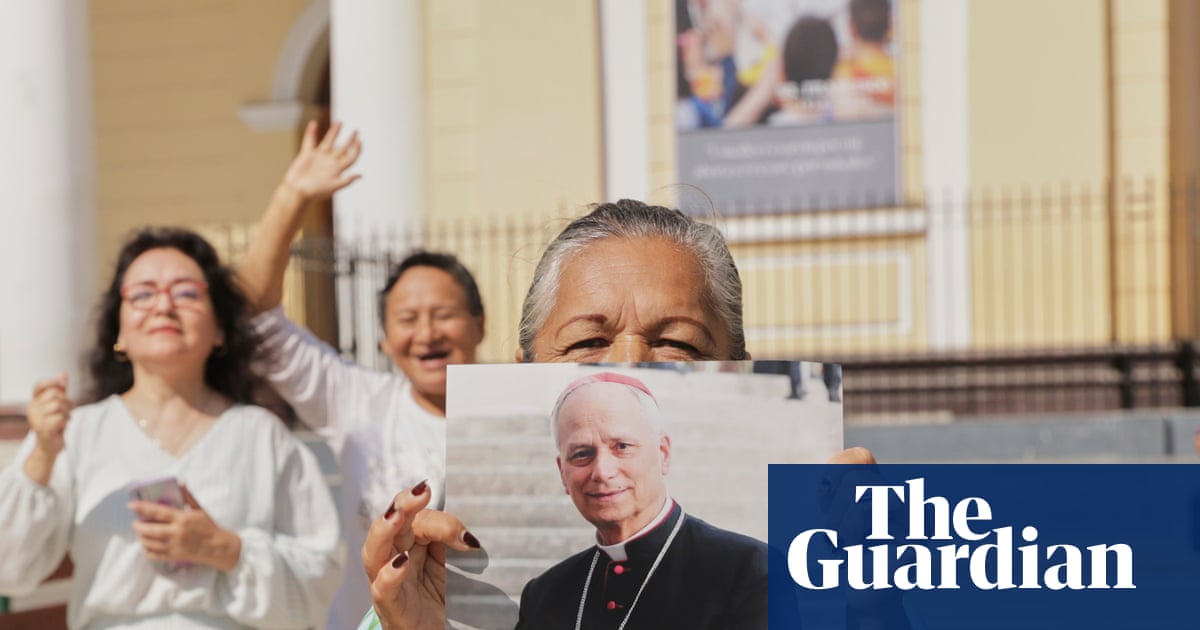Theelection of Pope Leo XIVhas been celebrated across Latin America, where many hailed him as the second pontiff from the region, following his Argentinian predecessor,Francis.
The news prompted particular elation inPeru, where he lived and worked for more than 20 years and was granted citizenship in 2015. In the capital, Lima, the bells of the cathedral rang in celebration.In his first appearance from the Vatican balcony, Leo XIV briefly switched from Italian to Spanish to address the faithful “from my beloved diocese of Chiclayo, in Peru”, where he served as bishop for more than a decade.
Peru’s President Dina Boluartehailed the “historic” electionof Leo XIV, whom she described as a Peruvian “by choice and conviction” who had devoted more than 20 years of service to the country. She added that Prevost, 69, “chose to be one of us, to live among us and to carry in his heart the faith, culture and dreams of this country”.
She added: “The pope is Peruvian; God loves Peru.”
Even so, Prevost has spoken out against Boluarte’s government in the past. In early 2023, he described his “sadness and pain” over the deaths of 49 protesters inanti-government demonstrationsthat erupted when President Boluarte took office in December 2022, replacing Pedro Castillo who was forced out forattempting to suspend congress.
At the time Prevost said the unrest reflected the historic neglect of Peru’s poor, saying: “This conflict does not represent the best of the country.”
Rosa María Vílchez, 49, who is originally from Chiclayo but now lives in Lima, met Prevost when attending a church service a few years ago.
“We knew him by name,” she recalls. “Today I remembered that when I saw him and I really felt like crying because he moved me. He transmits a lot of peace,” said Vílchez, who was collecting her children from school in Villa El Salvador, in the south of the capital.
“I hope that he brings a little peace, that he can stabilise the country in some way, because Peruvians are, mainly, very faithful and very Catholic. So, I think he is going to be a figure of political authority,” she added.
Cecilia Durand, 55, a publisher in Lima, said: “I’m not Catholic, in fact, there are many things about the church that I am against, but I think this is a good thing for Peru. It’s like winning the World Cup!”
As news of Leo’s election began to sink in, social media in Peru was flooded with memes of the pope eating ceviche, Peru’s flagship dish, and drinking Inca Kola, its bubblegum-flavoured soft drink. Others showed him in Peru’s red-and-white football shirt and another humorous image showed the popemobile refashioned as a three-wheeled motorcycle rickshaw, the principal mode of transport in much of the country.
Colombia’s interior minister, Armando Benedetti,postedon social media that the years spent in Peru “mean the new pope is once again a Latin American”.
Some posts on social media jokingly claimed that the new pope was “more Latino than the entire cast of Emilia Pérez”, referencing the French film that sparked controversy over its portrayal of Mexico.
Prevost first came to Peru in 1985, joining the Augustinian mission serving in the prelature in Chulucanas, near the border with Ecuador, until 1986. He returned in 1988, spending the following decade as head of the Augustinian seminary in Trujillo, the country’s third most populous city, also in the north, where he taught canon law and served as a judge on the regional ecclesiastical court.
He returned to the US in 1998 and was elected provincial of the Augustinian province of Chicago. He did not return to Peru until 2014 when Pope Francis appointed him as apostolic administrator of the diocese of Chiclayo. The following year, he was named bishop of the city. By 2023 he was promoted to archbishop, then he was made a cardinal in 2024.
Janinna Sesa, who met Prevost when she worked for the Catholic charity Caritas, said he was the kind of person who would “put on boots and wade through the mud” to help those most in need – as he did in 2022, when torrential rains affected Chiclayo and nearby villages.
He also delivered food and blankets to remote Andean villages, driving a white pickup truck and sleeping on a thin mattress on the floor, she told the Associated Press.
Observers say Prevost had a difficult relationship with the Catholic right in Peru, particularlySodalitium, a far-right Peruvian lay Catholic sect, with a strong presence in the region where he worked. Just before his death, Pope Francisdissolved Sodalitium, following a 50-year history of sexual, psychological and physical abuse, and allegations of malfeasance and corruption.
Additional reporting from Tiago Rogero, South America correspondent
